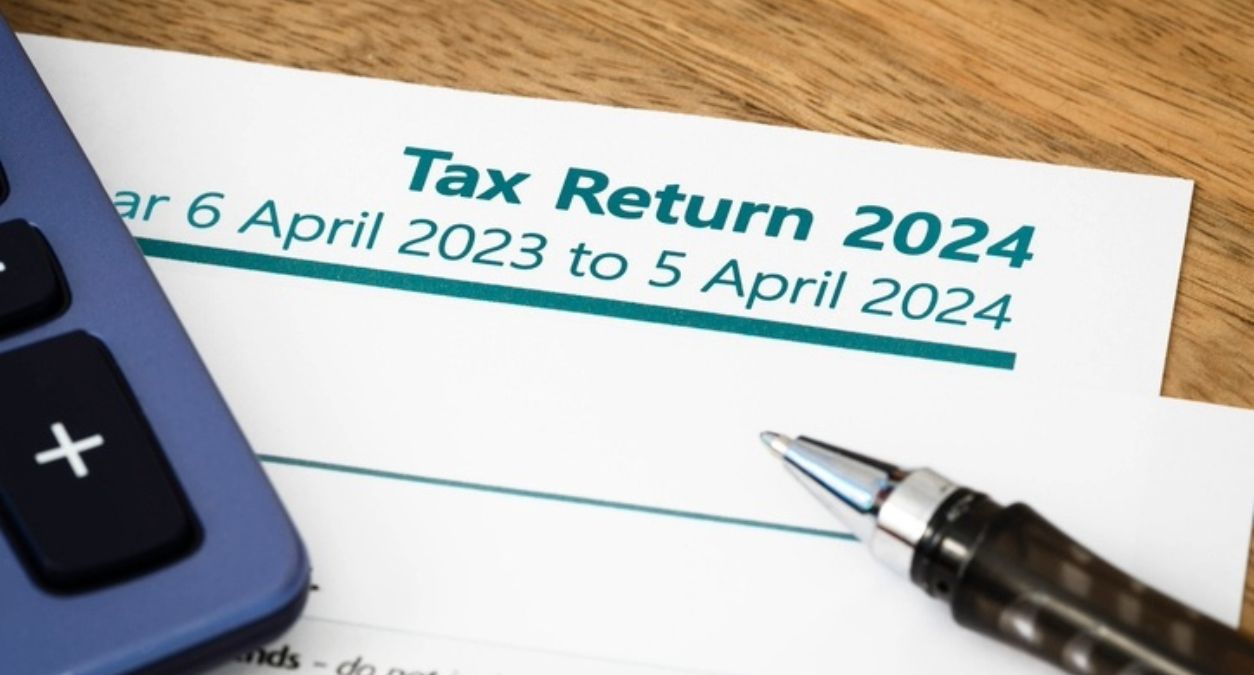Table of contents
Table of contents
With four weeks to go before the deadline, HMRC have announced that 5.4 million taxpayers still need to complete their self-assessment tax return. Are you one of them?
If you’re self-employed or a sole trader in the UK, filing your self-assessment tax return is a crucial part of managing your finances. It’s not exactly a task most people look forward to, but missing the deadline can lead to some serious consequences. Whether it’s due to procrastination, confusion, or unexpected life events, filing late can result in penalties, stress, and extra costs.
If you’ve left it to the last minute this year…take a breath, don’t panic, there’s still time! Here are some tips to highlight what happens if you miss the self-assessment deadline, most importantly – what you can do about it, and common queries surrounding a late tax return.
When is the deadline to submit your tax return in the UK?

For most people, the self-assessment deadline falls on 31st January 2025 following the end of the tax year. For example, the deadline for the 2023/24 tax year (which runs from 6th April 2023 to 5th April 2024) is 31st January 2025. If you’re filing a paper tax return by post, the deadline is earlier: 31st October 2024.
Failing to meet these deadlines can result in penalties, so it’s vital to mark them in your calendar. It’s also a good idea to start preparing well in advance—tax returns are rarely a task you want to rush through at the last minute.
Who should submit a tax return?
Self-assessment isn’t just for the self-employed, although they make up a significant portion of filers. You’ll need to submit a tax return if:
- You’re self-employed or a sole trader earning over £1,000.
- You receive untaxed income, such as rental income, dividends, or investment gains.
- You earn more than £50,000 and claim Child Benefit, triggering the High-Income Child Benefit Charge.
- You need to pay Capital Gains Tax or have other income that hasn’t been taxed at source.
If you’re unsure whether you need to submit a return, it’s better to check with HMRC rather than assume—it could save you a headache later.
What should you do if you think you’ll miss the deadline?

If you know you’re cutting it close, don’t panic. There are steps you can take to minimise the fallout:
Contact HMRC: If you’re facing circumstances beyond your control, such as illness or a bereavement, let HMRC know as soon as possible. They may offer support or leniency, especially if you act promptly.
Gather your documents quickly: Even if the deadline is near, organise your income records, expense receipts, and other relevant paperwork. This will make the process faster.
Consider an extension: While rare, you may be able to get an extension for extraordinary circumstances. This usually involves proving why you couldn’t meet the original deadline.
Work with an accountant: A professional can help you file as quickly and accurately as possible, reducing the risk of errors but at a late stage they will likely be fully committed to other clients.
What are the penalties for a late tax return?

The penalties for missing the deadline can add up quickly:
- £100 Late Filing Fee: This applies if your return is up to 3 months late.
- Daily Penalties: After 3 months, you’ll be charged £10 per day, up to a maximum of £900.
- Additional Penalties: At 6 months late, you’ll face a further 5% of the tax due or £300, whichever is greater. The same applies after 12 months.
- Interest on Unpaid Tax: Any tax you owe will accrue interest from the day after the payment deadline.
For example, if you owe £5,000 in tax and delay your return for over 6 months, you could face penalties exceeding £1,000—on top of the unpaid tax itself.
What if your accountant has filed it late?

Even if you rely on an accountant, the responsibility ultimately falls on you as the taxpayer. If your accountant fails to file on time, here’s what you should do:Communicate immediately: Ask your accountant for an explanation and whether they can rectify the issue promptly.
Document everything: Keep records of your correspondence in case you need to appeal any penalties.
Raise a complaint: If the accountant’s negligence has caused penalties, you can file a complaint with their professional body.
While HMRC is unlikely to waive penalties unless you can prove exceptional circumstances, showing that you acted in good faith may help.
What if you didn’t know you had to submit a tax return?
Ignorance isn’t usually a valid excuse, but HMRC does recognise that some individuals genuinely don’t realise they need to file. Common scenarios include:
Newly self-employed individuals: If you’ve recently started working for yourself, you may not know about the self-assessment system.
Complex income situations: If you have multiple income sources, it’s easy to overlook the requirement.
If this applies to you, register with HMRC as soon as possible. Be honest about why you didn’t file, and they may reduce penalties. However, don’t delay—acting quickly is key.
How to submit a late tax return

Filing late isn’t ideal, but it’s better than not filing at all. Here’s how to do it:
- Log in to your HMRC account: Use your Government Gateway credentials.
- Prepare your documents: Include income statements, expense receipts, and any relevant records.
- File the return online: Complete the form accurately to avoid triggering further penalties.
- Pay any tax owed: Settle the outstanding amount, including penalties and interest.
If you’re unsure about any part of the process, seek advice from an accountant or HMRC’s helpline.
How to appeal a late penalty charge for late submission
If you’ve received a penalty for filing late and believe it’s unfair, you have the right to appeal. Here are the steps you should take in these circumstances:
Understand your reason for the appeal:
HMRC will only consider appeals for specific “reasonable excuses.” Examples include:
- A serious illness or hospitalisation.
- The death of a close family member shortly before the deadline.
- Fire, flood, or theft preventing you from filing.
- Technical issues with HMRC’s online services.
Gather evidence:
To support your appeal, collect evidence such as:
- Medical records or a doctor’s note.
- Death certificates for close relatives.
- Screenshots of error messages if technical issues occurred.
Submit your appeal
- Use HMRC’s online service or submit a written appeal via post. Include your unique taxpayer reference (UTR), details of the penalty, and an explanation of your circumstances.
- Appeals can also be made by calling HMRC’s helpline for guidance.
Await HMRC’s decision
HMRC will review your appeal and notify you of their decision. This can take several weeks, so be patient but follow up if you don’t hear back.
Escalate if necessary
If your appeal is rejected and you still believe you have a strong case, you can request a review or take your case to the Tax Tribunal.
Acting promptly is critical. Appeals must generally be made within 30 days of the penalty notice.
Preventing future issues with your tax returns

Avoid the stress of late filing by taking proactive steps:
- Start early: Don’t wait until January to think about your tax return.
- Use accounting software: Tools like QuickBooks or Xero can simplify the process.
- Hire a trusted accountant: Work with someone who understands your needs and won’t leave things to the last minute.
- Set reminders: Use digital tools or a calendar to keep track of deadlines.
Missing the self-assessment tax return deadline isn’t the end of the world, but it can lead to unnecessary stress and financial penalties. By understanding your obligations, staying organised, and acting quickly if you’re late, you can minimise the impact.
Remember, HMRC’s deadlines are there for a reason, but they’re not designed to catch you out. If you’re ever unsure or need help, reach out to a professional or HMRC for guidance.
Get Small Business Insurance from Protectivity
*Disclaimer – This blog has been created as general information and should not be taken as advice. Make sure you have the correct level of insurance for your requirements and always review policy documentation. Information is factually accurate at the time of publishing but may have become out of date.
Last updated by

















